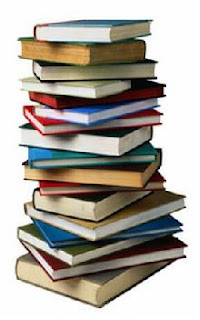Just in case some people taking the reading challenge stumble in here.
There is a new book out:
"Basket of Leaves, 99 Books that capture the Spirit of Africa" by Geoff WISNER which is basically a review of 99 books chosen to represent all African countries. Not all of those are good for the challenge since they are not necessarily written by a local author. And they are not all easy to find. I am slowly gathering and reading them but I may never get to them all. I go to the secondhand bookstore when I am in Johannesburg, and to the Sunday market which has a good secondhand book stand, but even then books are expensive in South Africa and they quickly get too heavy to carry home. So far I have managed to get a good collection mostly "inspired" by this list. For example I don't really want to read "Age of Iron" by J.M. Coetzee but I really enjoyed his "waiting for the barbarians". Here is the list of book Wisner reviews in his book, I have retyped it in alphabetical order by author, Wisner lists them in alphabetical order by country:
Chris Abani “Graceland” (Nigeria)
Chinua Achebe “Things fall apart” (Nigeria)
Andre Aciman “out of Egypt” (Egypt)
Ibrahim Al-Koni “the bleeding of the stone” (Libya)
Neshani Andreas “the purple violet of Oshaantu” (Namibia)
Ama Ata Aidoo “No sweetness here” (Ghana)
Maya Angelou “all god’s children need traveling shoes” (Ghana)
Mariama Ba “So long a letter” (Senegal)
Ronan Bennett “the catastrophist” (Congo)
Mongo Beti “mission to Kala” (Cameroon)
Julia Blackburn “the book of color” (Mauritius)
Paul Bowles “the sheltering sky” (Algeria)
Richard Burton “first foot steps in East Africa” (Somalia)
Bruce Chatwin “the viceroy of Ouidah” (Benin)
Syl Cheney-Coker “ The last Harmattan of Alusine Dunbar” (Sierra Leone)
J. M. Coetzee “Age of iron” (South Africa)
Maryse Conde “Segu” (Mali)
Harold Courlander & Ousmane Sako “The heart of Ngoni” (Mali)
Mia Couto “Voice Made night” (Mozambique)
Barbara Cornwall “The bush rebels” (Guinea-Bissau)
Basil Davidson “the fortunate Isles” (Cape Verde)
Mohammed Dib “the savage night” (Algeria)
Assia Djebar “Algerian white” (Algeria)
Emmanuel Dongala “the fire of origins” (Congo)
Lawence Durrell “Mountolive” (Egypt)
Buchi Emacheta “The slave girl” (Nigeria)
Cyprian Ekwensi “Jagua Nana” (Nigeria)
Nuruddin Farah “Secrets” (Somalia)
Giles Foden “the last king of Scotland” (Uganda)
Aminatta Forna “The devil that danced on the water” (Sierra Leone)
Dian Fossey “Gorilla in the mist” (Rwanda)
Amitav Ghosh “in an antique Land” (Egypt)
Nadine Gordimer “July’s People” (South Africa)
Philip Gourevitch “We wish to inform you that tomorrow we will be killed with our families” (Rwanda)
Graham Greene “Journey without a map” (Liberia)
Abdulrazak Gurnah “Paradise” (Tanzania)
Helon Habila “Waiting for an angel” (Nigeria)
James Hall “Sangoma” (Swaziland)
Bessie Head “when rain clouds gather” (Botswana)
Edward Hoagland “African Calliope” (Sudan)
Mark Hudson “Our grandmothers’ drums” (The Gambia)
Alan Huffman “Mississippi in Africa (Liberia)
Moses Isegawa “Abyssinian Chronicles” (Uganda)
Tahar ben Jelloun “the sand child” (Morocco)
Cheikh Hamidou Kane “Ambiguous adventure” (Senegal)
Ryszard Kapuscinski “Another day of the life” (Angola)
Ryszard Kapuscinski “the emperor” (Ethiopia)
Thomas Keneally “to Asmara” (Eritrea)
Mary Kingsley “travels in West Africa” (Gabon)
Robert Klitgaard “tropical gangster” (Equatorial Guinea)
Ahmadou Kourouma “the suns of independence” (Ivory coast)
Camara Laye “The dark child” (Guinea)
Doris Lessing “African Laughter” (Zimbabwe)
Naguib Mahfouz “Adrift on the Nile” (Egypt)
Sindiwe Magona “Mother to mother” (south Africa)
Nelson Mandela “Long walk to freedom” (South Africa)
Jack Mapanje “the chattering wagtrails of Mikuyu Prison” (Malawi)
Maria Manuela Margarido “Landscape” (Soa Tome and Principe)
Reginald McKnight “I get on the bus” (Senegal)
Zakes Mda “The heart of redness” (South Africa)
Albert Memmi “The scorpion” (Tunisia)
Geoffrey Moorhouse “The fearful void” (Mauritius)
Nega Mezlekia “Notes from the Hyena’s belly” (Ethiopia)
Charles Nicholl “somebody else” (Djibouti)
Mpho Nthunya “Singing away the hunger” (Lesotho)
Flora Nwapa “Efuru” (Nigeria)
Lina Magaia “Dumba Nengue” (Mozambique)
V. Y. Mudimbe “Between tides”
V. S. Naipaul “a bend in the river”
Charles Nicholl somebody else”
Redmond O’Hanlon “no mercy” (Congo)
Heinrich Oberjohann “Komoon!” (Chad)
Ben Okri “Stars of the new curfew” (Nigeria)
Sembene Ousmane “God’s bits of wood” (Senegal)
Delia and Mark Owens “The eye of the elephant” (Zambia)
George Packer “The village of waiting” (Togo)
Pepetela “Mayombe” (Angola)
Norman Rush “Whites” (Botswana)
Tayeb Salih “Season of migration to the north” (Sudan)
Robert M. Sapolsky “A primate’s memoir” (Kenya)
Louis Sarno “song of the forest” (Central African Republic)
Ruth Knafo Setton “The road to Fez” (Morocco)
Binwell Sinyangwe “A cowrie of hope” (Zambia)
Malidoma Patrice Some “Of water and the spirit” (Burkina Faso)
Carol Spindel “in the shadow of the sacred grove” (Ivory coast)
Ahdaf Soueif “the map of love” (Egypt)
Paul Stoller & Cheryl Olkes “in sorcery’s shadow” (Niger)
Sarah Stone “the true sources of the Nile” (Burundi)
Sony Labou Tansi “the seven solitudes of Lorsa Lope” (Congo)
William Travis “Beyond the reefs” (Seychelles)
Wole Soyinka “Ake” (Nigeria)
Ngugi wa Thiong’o “A grain of wheat” (Kenya)
Elizabeth Marshall Thomas “The harmless people” (Namibia)
Amos Tutuola “the palm-wine drunkard” (Nigeria)
Peter Tyson “the eighth continent” (Madagascar)
M.G. Vassanji “The gunny sack” (Tanzania)
Yvonne Vera “The stone virgins” (Zimbabwe)
Michel Vieuchange “Smara” (Western Sahara)
Samantha Weinberg “Last of the Pirates” (Comoros)
 You may, or may not remember that in Kazakhstan I got to see wild tulips as beautiful as any garden tulip grow in the spring in the middle of the steppe.
You may, or may not remember that in Kazakhstan I got to see wild tulips as beautiful as any garden tulip grow in the spring in the middle of the steppe.






